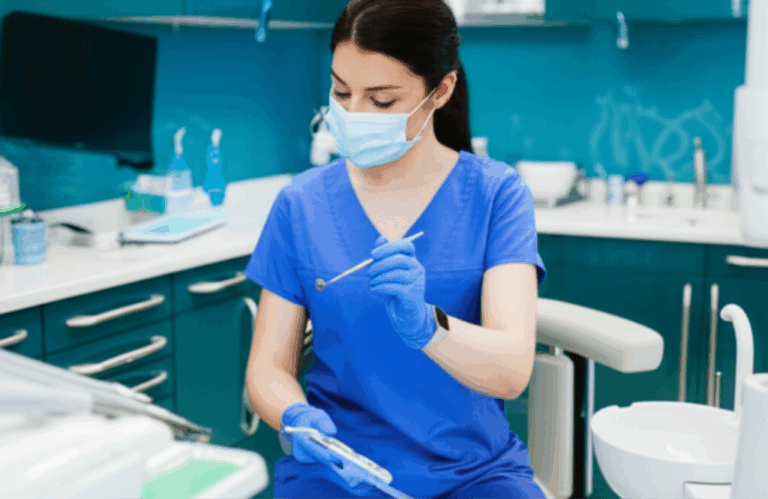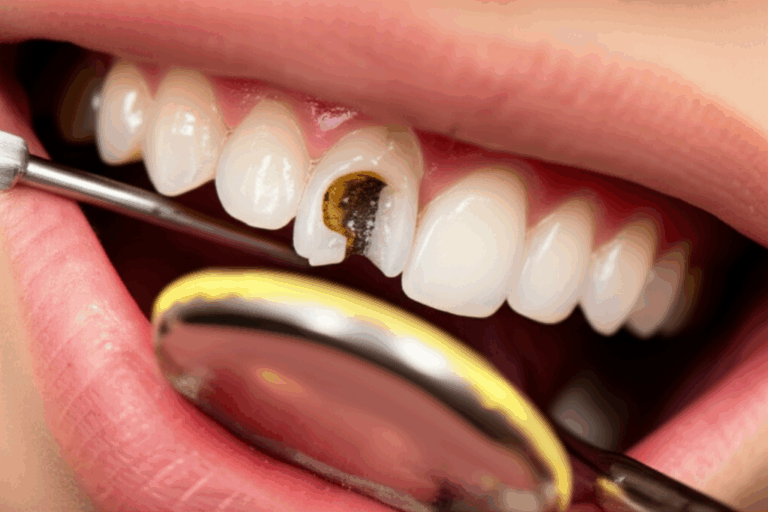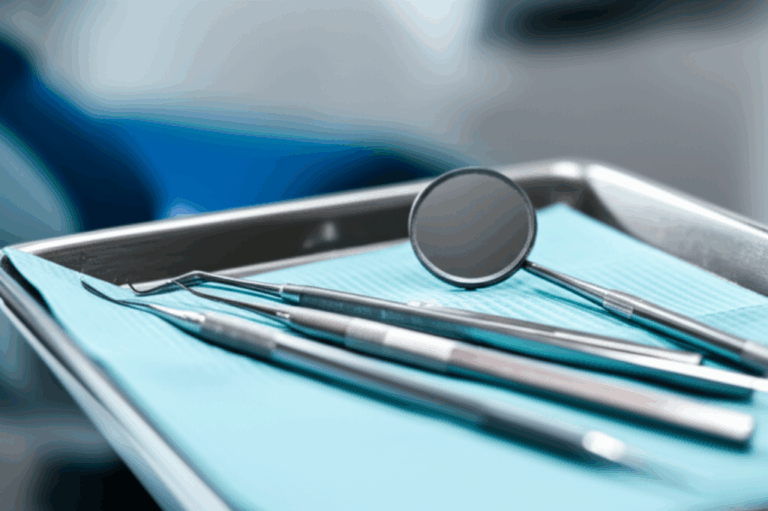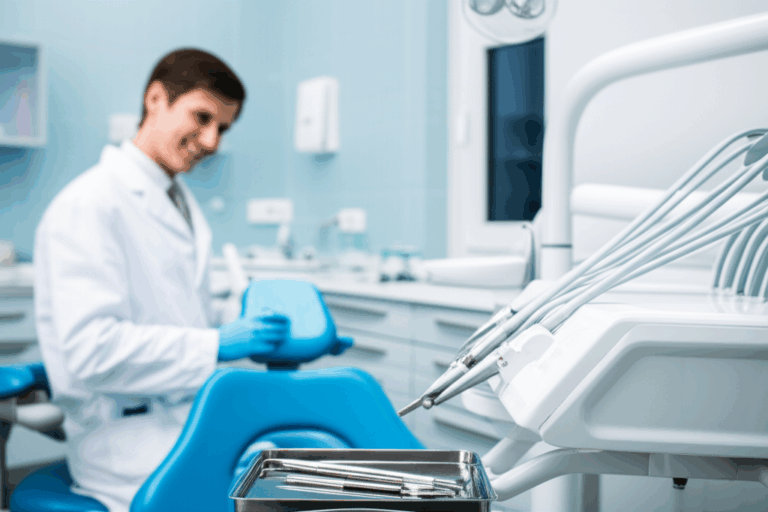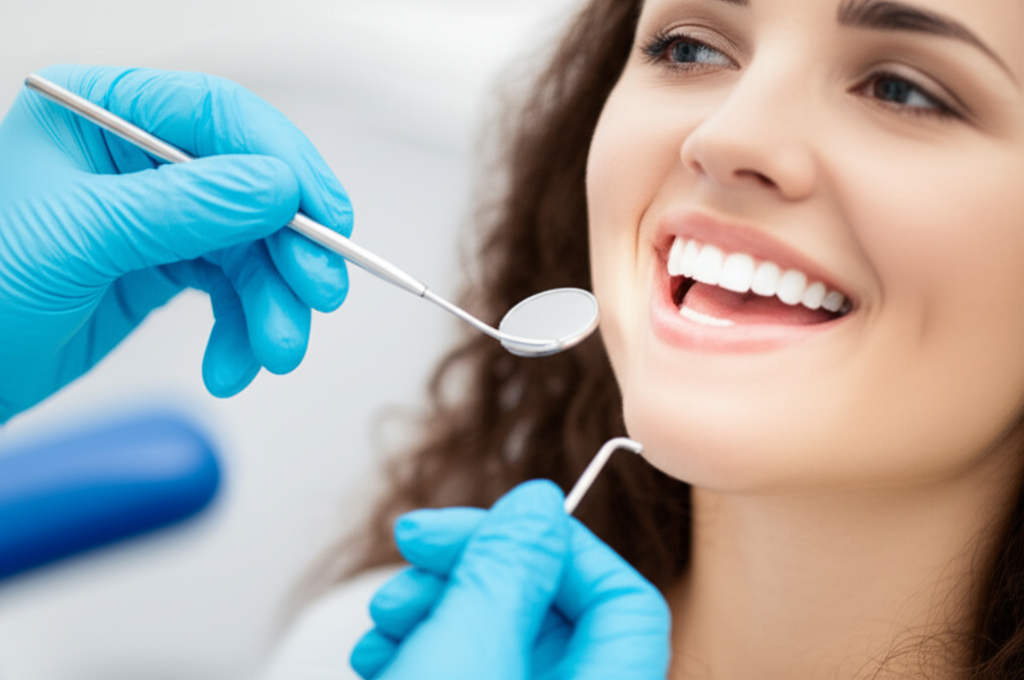
Can a Dentist Cure Bad Breath? Your Guide to Fresh, Confident Smiles
Bad breath can embarrass anyone, no matter your age. Have you ever wondered if a dentist can truly cure bad breath? This article lays out the honest truth—yes, a dentist can help. You’ll discover what causes bad breath, how dentists fix it, and why you shouldn’t ignore it any longer. With plenty of useful advice, real-world examples, and answers to your biggest questions, this is the guide you’ll want to read and share if you’re ready to enjoy lasting fresh breath.
Table of Contents
Why Should You Care About Bad Breath?
Let’s start with the problem. Bad breath isn’t just a small, awkward moment. Sometimes it pushes people away. Friends may keep their distance, and you might hesitate to speak up in class or at work. Even if you brush, floss, and rinse, bad breath can stick around. The good news? You’re not alone, and you don’t have to live with it.
A dentist can do a lot more than just fill cavities or clean teeth. Dentists are experts in finding what’s behind ongoing bad breath—also called halitosis—and getting rid of it for good.
What Is Bad Breath? Let’s Clear the Air
Ever woken up with a mouth that smells really bad? Relax—that’s totally normal. Morning breath, garlic after a meal, even a dry mouth from sleeping with your mouth open. These are all temporary.
But there’s a difference between short-term smells and halitosis. Halitosis is long-lasting bad breath that doesn’t go away after brushing, rinsing, or using mints. If you keep noticing bad breath, or others tell you about it, there’s usually a bigger cause. That’s where a dentist comes in.
What Causes Bad Breath? (Oral and Non-Oral Reasons)
Here’s a surprising fact: Up to 90% of bad breath comes from inside the mouth! Take a look at the two main groups:
Primary Oral Causes
- Bad Oral Hygiene: Not brushing and flossing lets food pieces and plaque build up. Bacteria love this—making smelly gases called volatile sulfur compounds (VSCs).
- Gum Disease (Gingivitis or Periodontitis): The gums get infected and pull away from teeth. That space becomes a bacteria party spot.
- Cavities and Tooth Decay: Holes and rotten teeth trap food and bacteria deep inside.
- Tongue Coating: Bacteria gather on the back of your tongue, making your breath stink.
- Dry Mouth (Xerostomia): Saliva helps keep your mouth clean. Without it, bacteria grow quickly.
- Tonsil Stones: Sometimes, small stones form in your tonsils and collect bacteria.
- Oral Infections: Abscesses, infected wisdom teeth, or other aches can make things smell really bad.
- Bad Dental Appliances: Loose or poorly fitting crowns, bridges, or dentures can trap food where brushes can’t reach.
Non-Oral Causes (Dentists Can Help Spot These Too)
- Sinus and Breathing Infections: When mucus builds up, it drips down your throat, carrying bad smells.
- Stomach Issues (like GERD/acid reflux): Stomach acids and fumes come up and out your mouth.
- Health Problems: Diabetes, kidney disease, and liver disease can all cause breath odors.
- Some Medications: Some medicines dry out your mouth or add strange smells.
Table: Major Causes of Bad Breath
| Cause | Type | How It Smells | Who Should Treat It |
|---|---|---|---|
| Plaque/Gum Disease | Oral | Rotten eggs, bad | Dentist |
| Cavities/Decay | Oral | Sour, rotten food | Dentist |
| Tongue Coating | Oral | Musty, stale | Dentist |
| Dry Mouth | Oral/Medical | Sour, metallic | Dentist/Doctor |
| Tonsil Stones | Oral/ENT | Pungent, cheese-like | Dentist/ENT doctor |
| Sinusitis/Post-Nasal Drip | Non-Oral | Musty, infected | ENT doctor |
| GERD/Acid Reflux | Non-Oral | Acidic, sour | Gastroenterologist |
| Diabetes, Kidney Disease | Non-Oral | Fruity, ammonia-like | Primary care doctor |
How Do Dentists Diagnose Bad Breath?
When you walk into a dentist’s office looking for help, here’s what usually happens.
Full Oral Exam
First, the dentist checks everywhere—in your mouth and around your teeth—looking for trouble. They carefully check for:
- Cavities or decayed teeth
- Red, swollen, or bleeding gums
- Food stuck under crowns, bridges, or between teeth
- The condition of your tongue and tonsils
- Problems with dental appliances (like dentures or braces)
Breath Check
Some dentists use their own noses—a real “smell test.” But many also have special gadgets:
- Halimeter: This machine measures the levels of VSCs in your breath.
- Tongue Swabs: Some dentists swipe your tongue and test for bacteria.
Questions About Your Daily Life
Your dentist may ask:
- What do you usually eat and drink?
- Do you smoke or chew tobacco?
- What medicine do you take?
- Do you have allergies, sinus problems, or get heartburn a lot?
All these questions help the dentist find the main cause, fast.
Can Going to the Dentist Really Cure Bad Breath?
Now for some good news. Yes, dentists can usually cure bad breath caused by things wrong inside the mouth. Here’s how:
Professional Cleaning: The First Step
Dentists or dental helpers do a heavy cleaning. This isn’t your normal brushing! They:
- Remove sticky plaque and tough tartar (calculus) above and below the gumline.
- Scrape and polish every tooth.
- Clean out bacteria pockets in the gums (using scaling and root planing).
Just this step can drop the smelly gases by up to 80%! Many people see big improvements right away.
Restoring Teeth: Fillings, Crowns, and Fixes
Rotten teeth and broken dental work are big odor makers. Your dentist will:
- Fill any cavities
- Fix or replace bad crowns or bridges
- Fix loose dentures or wires on braces
- Treat infections (sometimes with antibiotics or by cleaning out abscesses)
Need a custom dental appliance? You might check a crown and bridge lab for well-made pieces that look and feel natural.
Focused Gum Disease Help
If gum disease is the reason, your dentist:
- Cleans deep under the gums
- Shows you how to brush and floss better
- Sometimes suggests seeing a gum specialist (a periodontist) for extra help
- Might give a mouthwash or special toothpaste that kills tough bacteria
Teaching You How to Keep Your Mouth Clean
Every patient gets a quick lesson in good mouth care:
- Proper brushing—two times a day with the right moves
- Flossing between teeth every day
- Careful tongue cleaning with a scraper or soft brush
- Rinsing with a dentist-picked mouthwash
- Tips for drinking enough water and eating a balanced meal
Dry Mouth and Tonsil Stone Tips
If dry mouth is a problem, dentists suggest:
- Drinking lots of water
- Using sugar-free gum or spit helpers
- Talking with your doctor about medicine side effects
For tough tonsil stones, the dentist might remove them in the office or send you to a good dentist or ENT doctor for further care.
What Happens If the Dentist Doesn’t Fix My Breath?
Sometimes, the real reason isn’t in your mouth. If you’ve got healthy teeth and gums but your breath still smells, your dentist will help you figure out what’s next.
Sending You to Other Doctors
- Ear, Nose, and Throat (ENT) doctors check sinus infections, tonsil trouble, or post-nasal drip.
- Gastroenterologists help with things like reflux and stomach problems.
- Family doctors handle things like diabetes, kidney, or liver trouble.
- You might even find out your medicine is causing the problem, and your doctor can switch it.
A caring dentist won’t leave you alone. They’ll guide you to the right expert for a real solution.
How Can I Prevent Bad Breath After Treatment?
This is where you become the hero of your own story! Stopping bad breath before it starts saves you time, stress, and money.
Everyday Mouth Care
- Brush your teeth (and tongue!) at least two times each day.
- Floss between teeth to get what your brush misses.
- Use a dentist-approved mouthwash if told to.
- Drink lots of water—dry mouths smell!
Regular Dental Visits
- Visit your dentist every 6 months for a pro cleaning.
- Stay ahead of gum disease, decay, or loose appliances.
- All dental pieces—like removable dentures or night guards—need to fit right and stay clean.
Smart Lifestyle Moves
- Avoid too much coffee, garlic, and onions.
- Quit smoking and drink less alcohol.
- Treat allergies and reflux with your doctor’s help.
Real People, Real Results: Case Studies and Stories
Let’s see what treatment looks like in real life.
Ms. R, Age 38: Dental Work Saves the Day
Ms. R always brushed after meals but felt embarrassed by her breath. When she finally saw her dentist, she learned she had some deep untreated cavities and bleeding gums. After a few simple fillings and a deep clean, plus learning to scrape her tongue, her bad breath was gone within a month. She felt sure of herself and happy to speak up at work again.
Mr. K, Age 55: When the Cause Isn’t in the Mouth
Mr. K tried every trick at home but nothing worked. His dentist found healthy gums and clean teeth. A few quick questions showed he always had heartburn and a sour taste. The dentist sent Mr. K to a specialist, and after fixing his acid reflux, his breath problem was gone.
Common Bad Breath Myths—Busted!
There’s a lot of talk about what really helps with bad breath. Let’s set things straight.
Myth 1: Mints or Chewing Gum Are Enough
Fact: Most mints and gum just cover up smells for a few minutes. Without clearing out bacteria, the smell comes back.
Myth 2: Only Adults Get Halitosis
Fact: Kids and teens can get bad breath too, especially if they don’t brush, floss, or clean their tongue.
Myth 3: If I Brush, I Don’t Need the Dentist
Fact: Even great brushing misses tough spots where bacteria hide. A dentist’s cleaning is important.
Myth 4: Bad Breath Means Bad Brushing Only
Fact: Nope! Gum disease, dry mouth, tonsil stones, and even stomach issues can all play a part.
When Should You See a Dentist for Bad Breath?
Don’t wait until you’re scared friends or classmates will notice! If you’ve been brushing and flossing for two weeks and your breath still smells, it’s time to see a dentist.
Warning Signs:
- Bleeding, swollen, or red gums
- Loose teeth or pain when chewing
- Bad taste that just won’t go away
- Mouth that’s always dry
- White or yellow stuff on your tongue
Sometimes, you need more than brushing and flossing. That’s when dentists—and dental labs, like a trusted china dental lab or a handy digital dental lab—step in with smart tools and know-how to help.
FAQ: Quick Answers to Big Questions
Q: Can dentists cure all types of bad breath?
A: Dentists can cure almost all cases caused by things inside your mouth. For issues caused by health problems or stomach trouble, they’ll help you find the right doctor.
Q: How long does treatment take?
A: Many people notice better breath after just one dental clean! Bad breath from gum sickness or infections may take a few weeks to go away for good.
Q: Is the treatment expensive?
A: Easy cleanings and check-ups don’t cost a lot and are often covered by dental insurance. More tricky fixes, like crowns, can cost more.
Q: What’s the best way to keep bad breath away?
A: Brush, floss, clean your tongue, and see your dentist now and then.
Key Takeaways: What to Remember
- Over 25% of people have trouble with bad breath—don’t feel embarrassed.
- Most bad breath comes from mouth problems like gum disease, cavities, or tongue bacteria.
- Dentists are pros at finding, treating, and curing bad breath.
- Simple dental care, like cleanings and fillings, fixes the problem for most people.
- Gum disease and rotten teeth are big causes; fixing them helps.
- If the problem isn’t in your mouth, dentists lead you to the right medical help.
- Stick to regular brushing, flossing, and dental visits.
- Use quality dental labs for pieces that fit well and keep you healthy.
- Don’t just count on mints—they only hide the problem.
For more info or dental help, check out trusted resources like a dental ceramics lab or talk with your dentist today. Fresh breath is possible—start your journey now!

